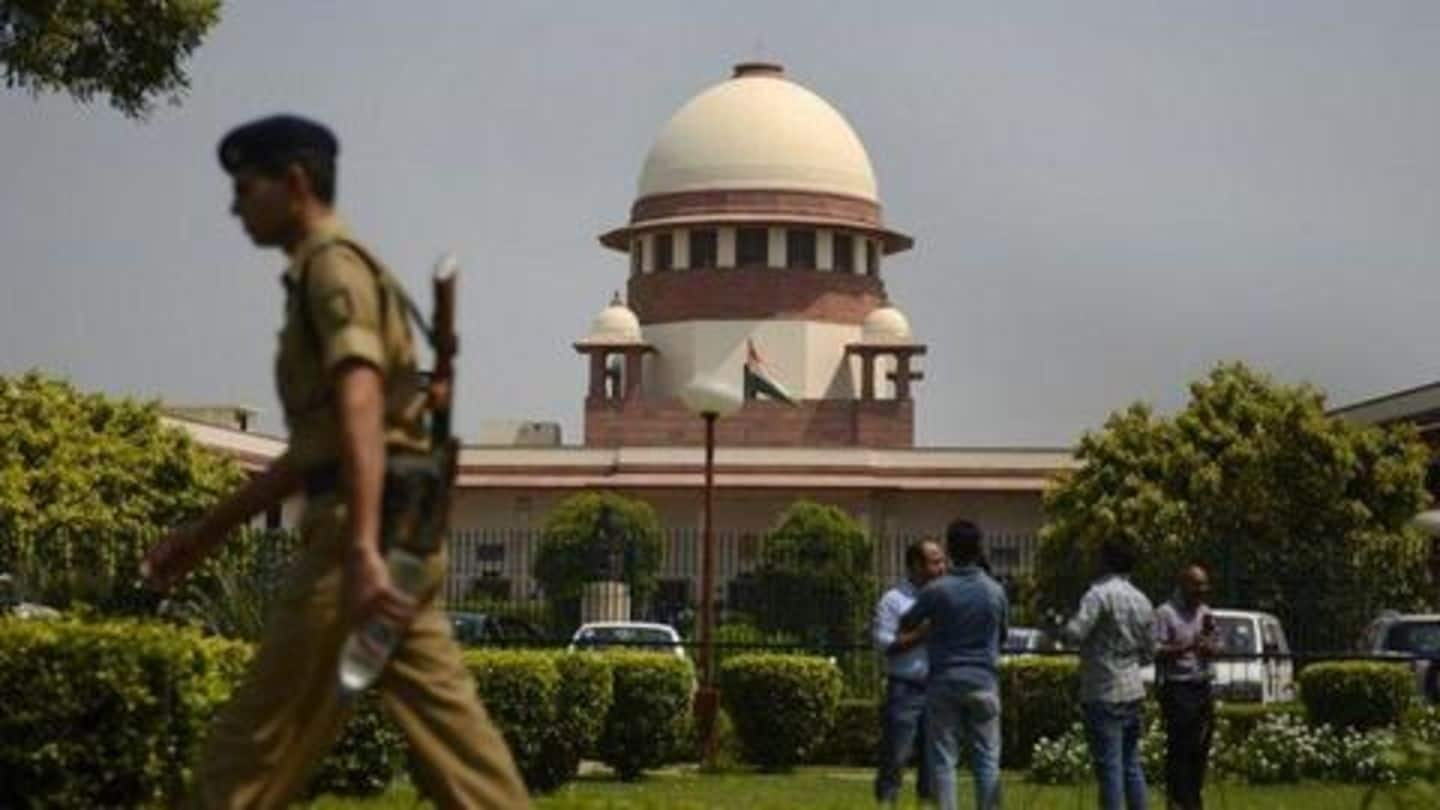
Should CJI's office come under RTI Act? SC's verdict today
What's the story
Today, the Supreme Court will announce whether the office of Chief Justice of India should come under the purview of the Right to Information (RTI) Act. The verdict will be announced by a five-judge constitution bench, headed by CJI Ranjan Gogoi, who retires on November 17. The judgment is likely to be pronounced at 2 pm. Here are more details.
Beginning
The bench reserved its order in April
The case has been lying in the apex court since 2010, and the bench, also including Justices NV Ramana, DY Chandrachud, Deepak Gupta and Sanjiv Khanna, reserved their verdict on April 4. On January 10, 2010, Delhi High Court, in a landmark judgment, had said the transparency law should be extended to CJI's office too. Judicial independence was not a judge's privilege, the court noted.
Looking back
When activist sought answers, Delhi HC delivered judgment
HC's order came on a petition filed by RTI activist SC Agarwal. In 2007, he demanded a copy of the resolution dated 7.5.1997, which underlined that all judges should declare assets. The case was heard by three-judge bench Chief Justice AP Shah (since retired) and Justices Vikramjit Sen and S Muralidhar. They had junked SC's argument that bringing the CJI office under RTI would "hamper" judicial independence.
Arguments
In top court, Prashant Bhushan submitted his opinions
Years ago, when HC delivered its 88-page judgment, it was seen as a setback for Chief Justice KG Balakrishnan, who didn't like the idea. Subsequently, SC's secretary-general and central public information officer approached the apex court. Agarwal was represented in court by senior lawyer Prashant Bhushan, who said SC shouldn't judge its own cause but was doing so because of the "doctrine of necessity".
What he said
Bhushan had asked if judges belonged to some other universe
Bhushan had called SC's reluctance in offering information about itself as "unfortunate" and asked if judges inhabited some another universe. "This is not independence from accountability. Independence of the judiciary means it has to be independent from the executive and not independent from the common public. People are entitled to know as to what public authorities are doing," he had said.
Details
After hearing arguments, bench spoke about free speech and Constitution
Appearing for SC, Attorney general of India KK Venugopal said cases related to judges shouldn't be made public. After hearing both sides, the bench commented, "Independence of judiciary forms part of the basic structure of the Constitution. The independence of the judiciary and fundamental right to free speech and expression are of great value and both are required to be balanced."